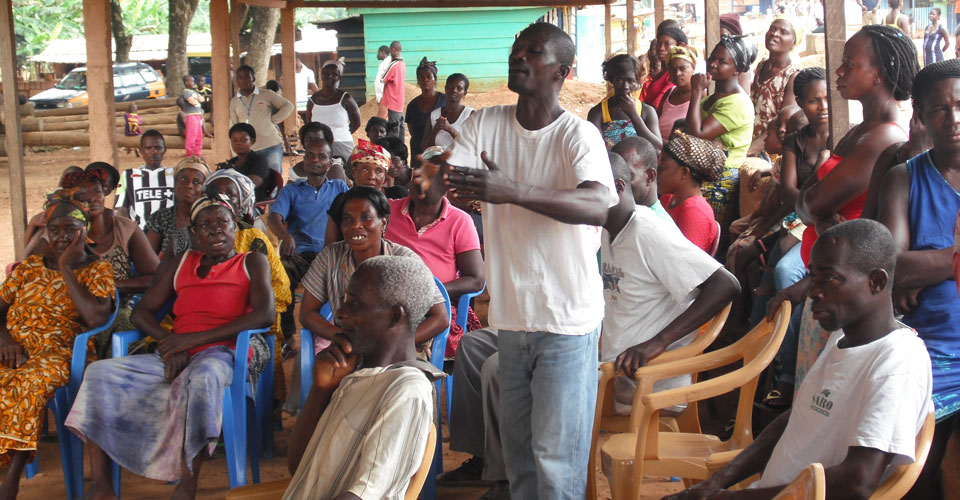Ghana:
You won’t touch our forest without our consent!

“Now that we are aware of the forest laws and policies, we will not look on unconcerned while our forest resources are destroyed!” said the Saamang community from Western Ghana when speaking to the press in January 2011 after demonstrating against a mining company. Young activists and women from the community were celebrating their successful protest against Golden Star Resource Limited, a company planning to mine in the community’s forests without previously informing or sharing benefits with them.
This David and Goliath story would not have happened without the presence of the Centre for Indigenous Knowledge and Organizational Development (CIKOD). By working with 500 community members to help them understand their right to be informed, consulted, and compensated by companies seeking to exploit local forests for timber or minerals, they had made sure that when Golden Star Resource arrived with heavy mining equipment they were informed and ready.
The community quickly realised that the company had no plans to engage in consultation or negotiate the sharing of benefits, so they staged a demonstration and expelled the company and its bulldozers from their land. Theresa Amoah, a local farmer struggling to send her daughter to college told us “I was part of the group who drove the mining company away. I showed my breast to the men who were working for the mining company and they know it is curse for a woman to do that in public so they ran away”.
On the back of this success, the community broadcast a public announcement, which caught the attention of the Chief Executive of the Wasa Amenfi East District, where the Saamang community lives. The official then instructed Golden Star Resource Limited not to re-enter the community without having followed the appropriate consultation and negotiation procedures.
Communities are key to protecting the forests but they are at a disadvantage if they are unclear about the benefits accruing from them. Once they have the information, they know what is going on and, more importantly, what they are getting out of it."
- Willie Laate, CIKOD’s project leader
The impact of the Saamang community’s stand didn’t end there. When they broadcast their grievances through national and local press in other districts, they prompted four other communities to take similar actions against mining companies and prevent them working in their communities.
Too often, the story is different. Communities in poor countries with weak laws and lots of resources can see what is wrong but they are powerless to stand up to companies. Under the banner of the Making the Forest Sector Transparent programme, Global Witness, CIKOD, and six other partners have developed an Annual Transparency Report which identifies several key steps needed to tackle forest sector transparency and accountability in Ghana. These include opening up secretive decision making processes for activities like mining, addressing the inequity of many social agreements between communities and companies, and the absence of a legally recognised mechanism for public participation in decision-making.
Madam Amoah reflected on her experience: “I depend solely on farming and I keep asking myself, ‘what would have happened if the gold mining had taken place?’. Then, I answer myself, ‘had they paid me compensation, I would have finished spending the money. My children would have dropped out from school like the children in other communities where mining has destroyed their farm lands.’”
In this case, CIKOD’s information and capacity building approach proved to be the right move to empower vulnerable communities to engage both with powerful companies and local authorities, and give them a say in the management of their forests. The immediate echo found by the bold stance of Saamang community is a promising step forward in getting local communities to benefit fairly and sustainably from their forests.
“Communities are key to protecting the forests but they are at a disadvantage if they are unclear about the benefits accruing from them. Once they have the information, they know what is going on and, more importantly, what they are getting out of it”, says Willie Laate, CIKOD’s project leader.
